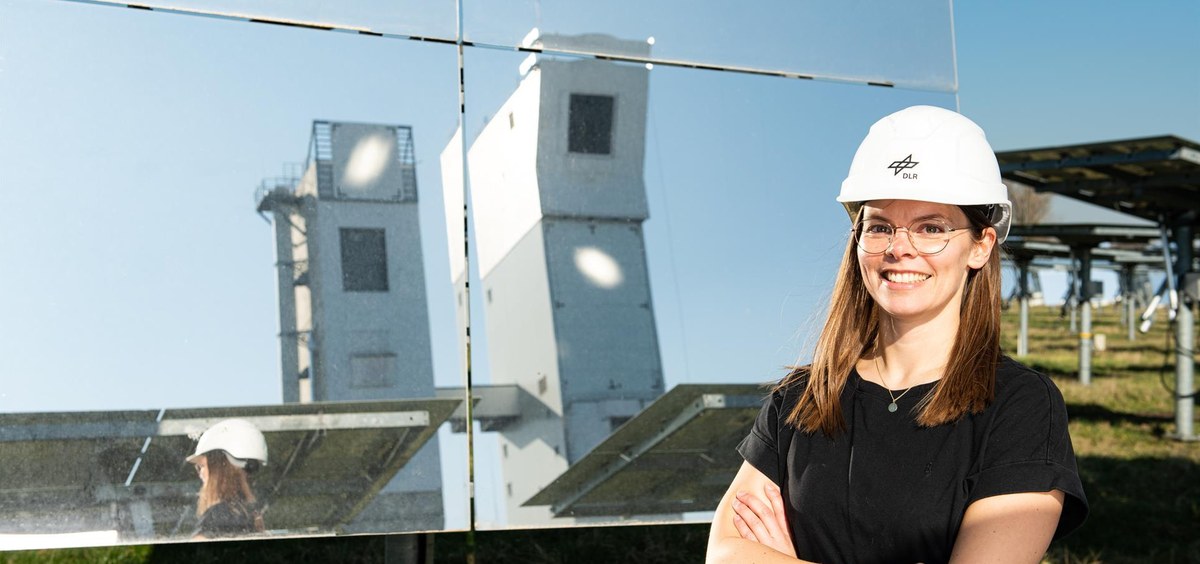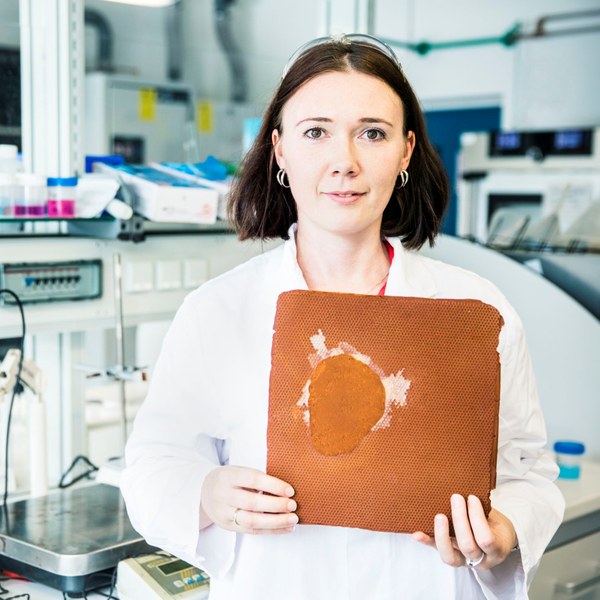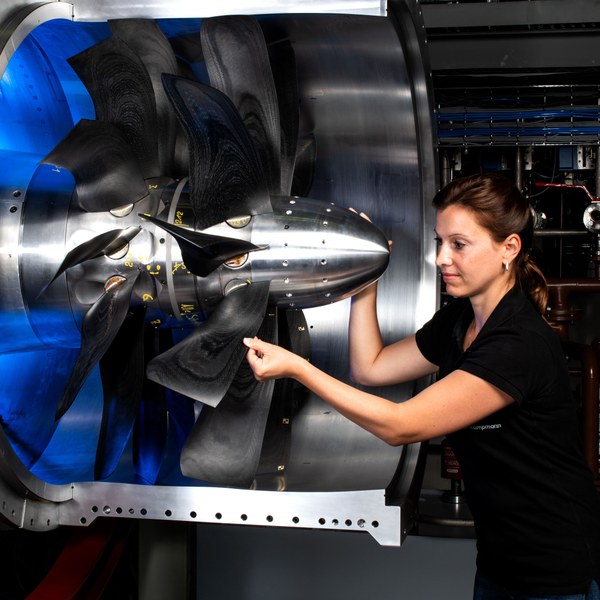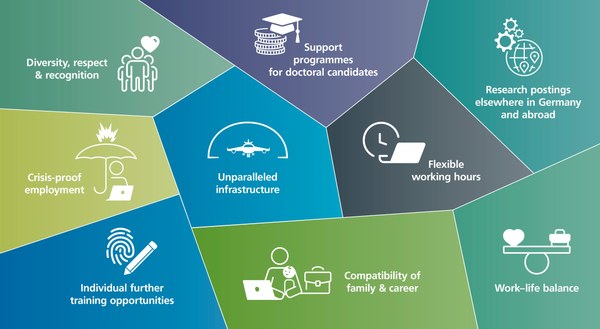Kristina Blume
Field of study: Mechanical engineering
Now: Institute of Solar Research
Kristina Blume studied mechanical engineering with a specialization in energy technology. She joined DLR in 2017 as a master's student, then completed her doctorate and has been working as a research associate at the Institute of Solar Research in the Qualification department in Jülich since 2022. In the interview, she provides insights into her work.
Kristina, what do you look forward to when coming to work in the morning?
Kristina: From a purely idealistic point of view, I look forward to making the world (hopefully) a little bit better every day with my work, as we are working on solutions for a sustainable energy supply at our institute.
In practical terms, I look forward to exchanging ideas with my colleagues, even if it's just during our lunchbreak. We all have our own special areas of research and can always learn a lot from each other. In addition to the professional exchange, a little personal exchange is not to be missed. When you spend so much time together, you’re almost more likely to become friends than just colleagues.
„From a purely idealistic point of view, I look forward to making the world (hopefully) a little bit better every day with my work, as we are working on solutions for a sustainable energy supply at our institute“
What are you researching or working on?
Kristina: I work in the field of solar tower power plants, which reflect sunlight onto a central tower with the help of thousands of mirrors in order to generate heat. This heat can then be used directly or converted into electricity, enabling us to use the energy of the Sun instead of burning fossil fuels.
My speciality, which was also the subject of my doctorate, is the influence of wind on the mirrors (known as heliostats), because wind can lead to unwanted movement or even destroy the mirrors. To investigate this, I am carrying out a series of different measurements on the DLR-owned solar tower and the heliostat test facility in Jülich.
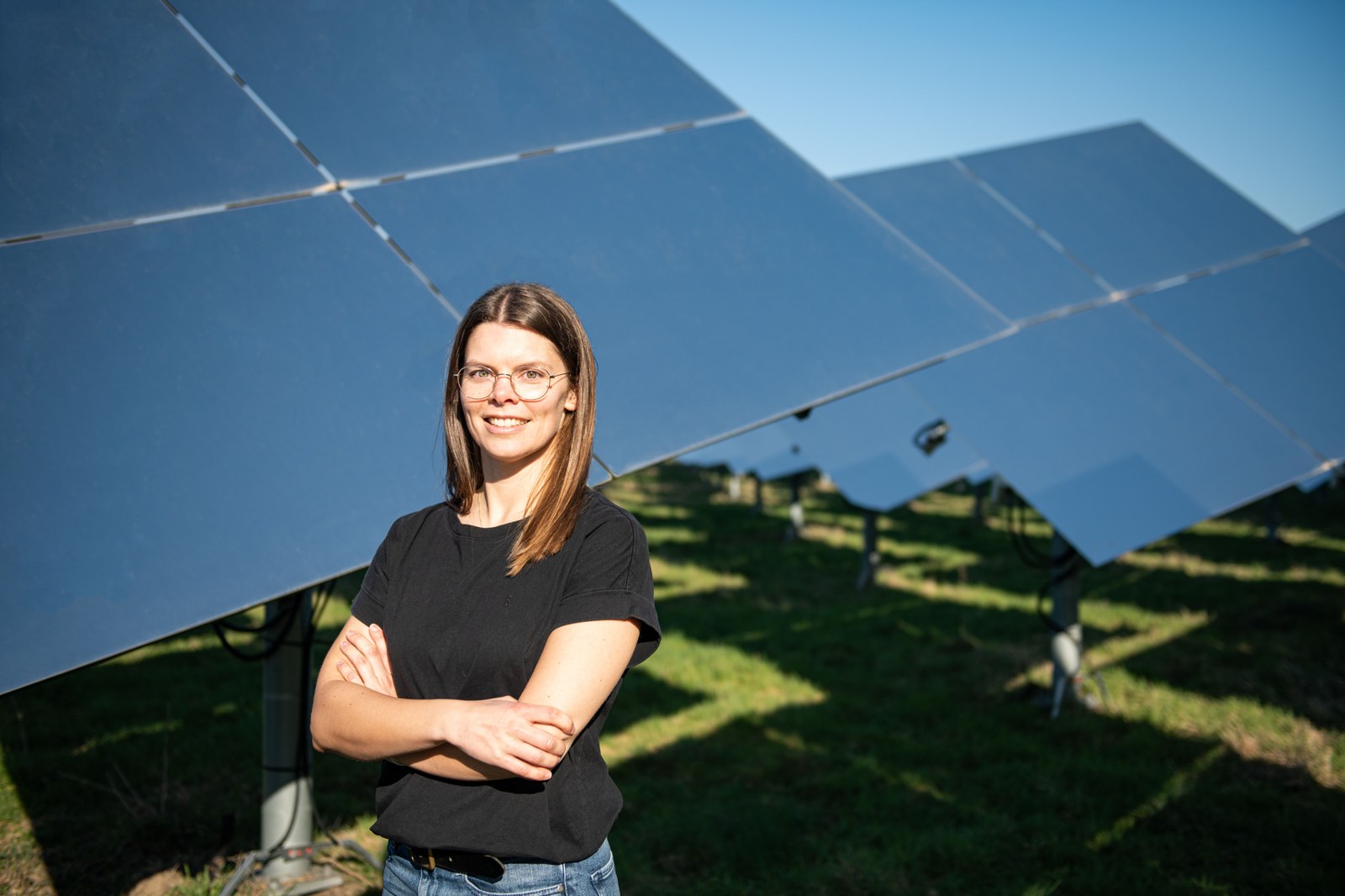
What does your typical working day involve?
Kristina: There is no such thing as a typical working day for me. On some days there is pure office work, which could be evaluating measurement data; on other days, however, I spend the entire time out in the field.
On the heliostat test facility, for example, I use cameras to measure the movement of a heliostat under wind load. I measure the wind load at the same time using pressure sensors that I attach to the surface of the mirror.
Where and how is your work being used?
„I would like to encourage everyone to consider it - especially young girl. Technical studies and training are possible for anyone who is interested. Just go for it! “
Kristina: In the long term, my work should contribute to norms and standards for heliostats, which our institute is developing in cooperation with many different partners. These standards are important for establishing uniform definitions and thus, for example, creating clear framework conditions for contracts to make solar thermal power plants even more attractive.
What are the highlights of your work?
Kristina: One aspect is clearly the experimental work in the field. Not only does it bring a lot of variety into my daily work, it’s also incredibly exciting to work on a research facility as big as the solar tower.
On a personal level, I also enjoy team or project meetings, where we discuss challenges together with colleagues and project partners, work out solutions together and develop new ideas.
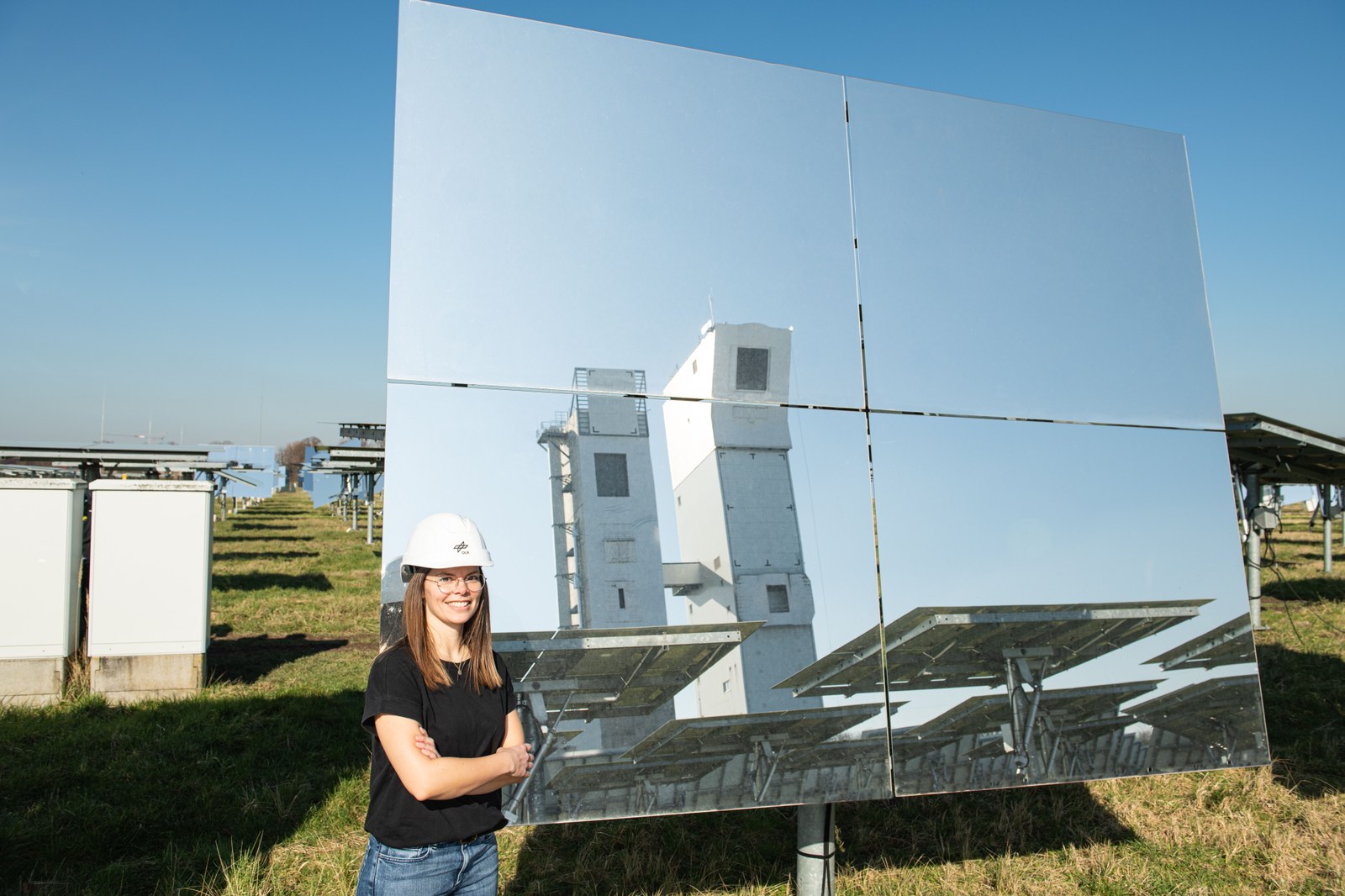
What special skills can you make good use of in your job?
Kristina: My determination and my empathy. The beauty of science is that you are always working on the latest topics and researching new questions; the challenge is to find your way in these new areas. It helps me to be determined, to prioritise tasks and to always keep the research goal in mind.
It's equally important to work well in a team. Often, teams bring together different personalities so being empathetic helps me to understand all perspectives and come to a common solution.
Leave us a final thought.
Kristina: Although I enjoyed subjects like maths and physics at school and was interested in pursuing technical studies, I almost decided against studying mechanical engineering out of a fear of not having enough experience and previous knowledge (I thought: "I've never owned a scooter and messed about with it as I'm sure many other (boys) who do mechanical engineering have"). Looking back, that fear was completely unfounded. So I would like to encourage everyone to consider it –especially young girls. Technical studies and training are possible for anyone who is interested. Just go for it!

